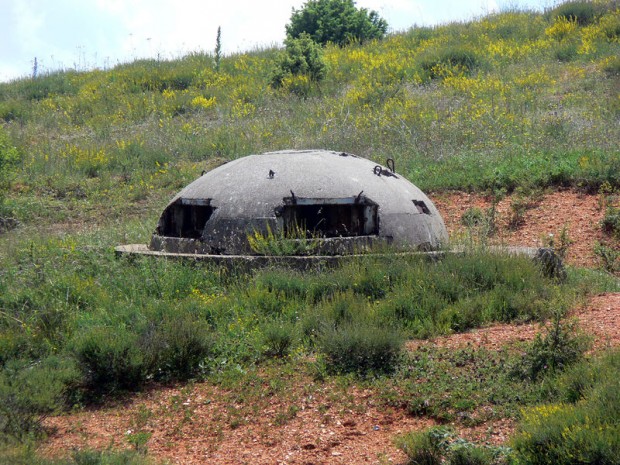
University of Newcastle researchers may have come up with a biotechnology answer to the roadway printer I posted about yesterday: bacteria that produce concrete. They’ve applied some very delicate genetic engineering to the common soil bacterium Bacillus subtilis, turning it into a bug that will colonize cracks in concrete and secrete its own calcium-carbonate-based cement to fix ruined buildings and crumbling roadways.
The modified bacterium, which its developers have dubbed “BacillaFilla,” sports some serious modifications to its genome. First, it’s engineered to thrive in the pH range specific to concrete; a self-destruct gene is activated when they leave this environment in order to restrict the bacterium to their paved habitat. It’s further programmed for “quorum sensing,” impelling it to aggregate with bacilli of the same species. This behavior induces the bacteria to “swim” to the bottoms of cracks in the substrate, where it pools with its teeming brethren. Once they sense the population reaching a certain critical level, the bacteria begin to produce adhesive filaments and a calcium-carbonate “glue,” creating a masonry-like concretion to fill the crack and knit together the broken cement.
If the bacteria perform as expected, the benefits could go beyond infrastructure repair. Concrete,which outgasses enormous amounts of carbon dioxide as it cures, is a major contributor to climate change. To produce its own cement, however, BacillaFilla sequesters CO2 from the atmosphere, making it potentially a carbon-negative source of paving.
BacillaFilla sounds optimally engineered for road repair, although it could prove useful in furnishing rapid fixes after devasting events such as earthquakes.
Give the engineering a few tweaks, however, and the mind boggles at the possibilities: dig a hole in the backyard, inoculate it with a little BacillaFilla, and watch while your new swimming pool assembles itself. Or engineer some cold- and radiation-resistant extremophiles to withstand the rigors of space; instead of printing our moon colonies, we could have bacterial pioneers secrete them for us before our arrival.
Of course, if it goes wrong and BacillaFilla turns pathogenic, we might end up with infectious concrete outbreaks scarring our infrastructure.
[via MSNBC] Gearfuse Technology, Science, Culture & More
Gearfuse Technology, Science, Culture & More

